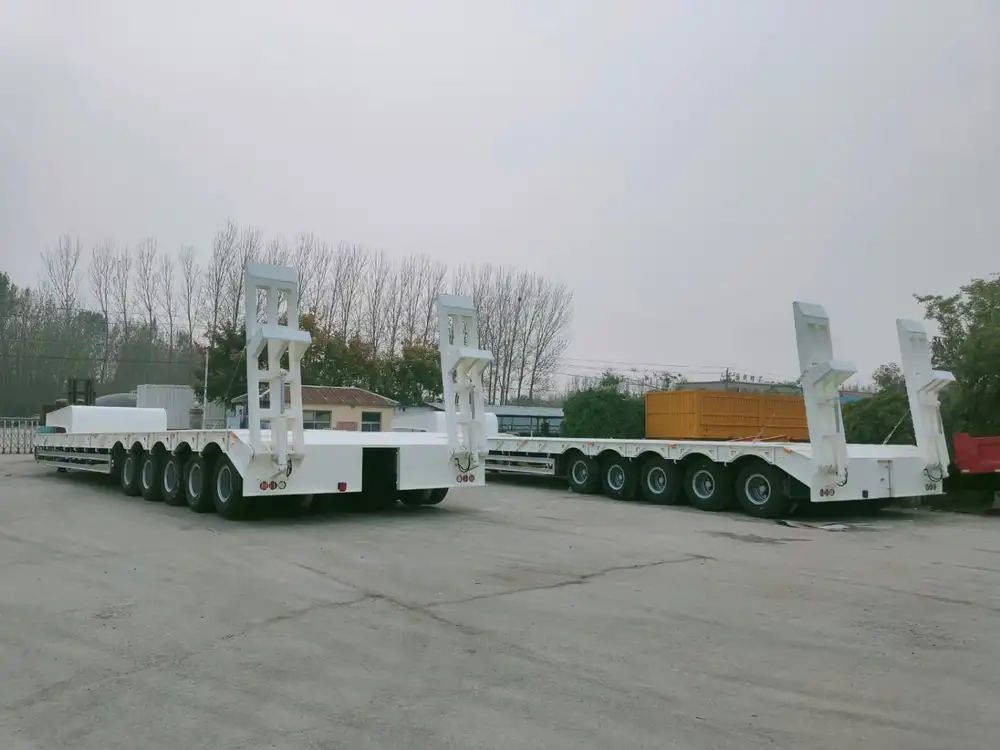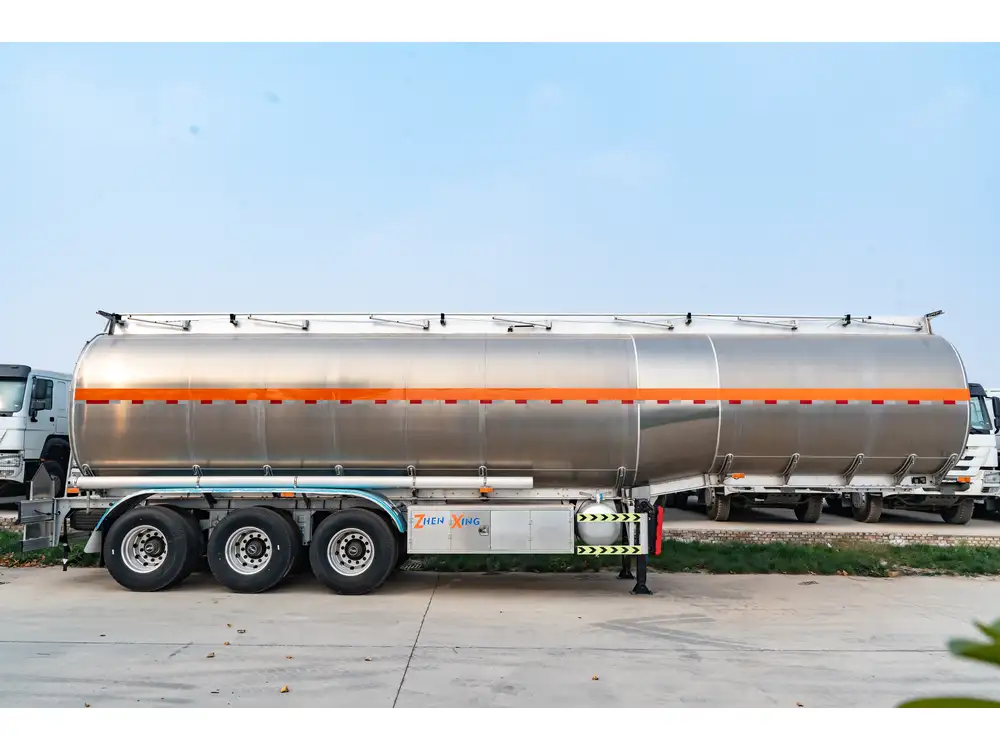When it comes to transporting vehicles, specific equipment is required to ensure safety, efficiency, and reliability. One of the most commonly used tools for this purpose is a car hauling trailer. But what exactly is a trailer used to haul a car called? In this article, we will explore the different types of car hauling trailers, their specific purposes, and crucial factors to consider when choosing the right one for your needs.
Types of Car Hauling Trailers
There are several types of trailers specifically designed for hauling cars. Each type serves its unique purpose and caters to different requirements of vehicle transportation. Here, we will break down the most common types:
1. Open Car Trailers
Open car trailers are the most prevalent type used in car transportation. They consist of a flatbed design with no sides or a roof, allowing vehicles to be loaded and unloaded easily.

Features:
- Affordability: Generally less expensive than enclosed trailers.
- Simplicity: Easier to maneuver and load vehicles.
- Versatility: Suitable for various types of vehicles, including cars, trucks, and motorcycles.
Benefits:
- Great for short-distance transport.
- Enhanced ventilation reduces the risk of moisture damage.
2. Enclosed Car Trailers
Enclosed trailers provide additional protection for the vehicles being transported. The design features fully enclosed sides and a roof, securing the vehicle from weather elements and potential theft.

Features:
- Security: Protects vehicles from theft with locked doors.
- Weather Protection: Shields vehicles from rain, snow, and sun damage.
Benefits:
- Ideal for valuable cars, show cars, or vintage vehicles.
- Better protection during long-distance transport.
3. Tow Dollies
Tow dollies are a specialized type of trailer, primarily designed for towing vehicles with front-wheel drive. They lift the front wheels off the ground while the rear wheels remain on the road.

Features:
- Compact Size: Easier to store and maneuver compared to larger trailers.
- Lightweight Construction: Reduces the overall towing load of the vehicle.
Benefits:
- More fuel-efficient when towing.
- Quick loading and unloading process.
4. Car Hauler Trailers
Car hauler trailers are built specifically to transport multiple vehicles simultaneously. They come in both open and enclosed versions and are ideal for car dealerships, auctions, and commercial use.

Features:
- Multiple Load Capacity: Often designed to hold 2 to 10 vehicles.
- Heavy-Duty Construction: Made to withstand the weights of several cars at once.
Benefits:
- Reduces transportation costs per vehicle.
- Efficient for bulk vehicle transport.
Important Considerations for Choosing a Car Hauling Trailer
When selecting a trailer specifically designed for hauling cars, various factors come into play. Understanding these criteria can help you make an informed decision.

1. Weight Capacity
Knowing the weight capacity of the trailer is crucial. Consult the manufacturer’s specifications to determine how much weight the trailer can safely carry, including the weight of the vehicle and any additional equipment.
| Trailer Type | Typical Weight Capacity |
|---|---|
| Open Car Trailers | 5,000 – 10,000 lbs |
| Enclosed Trailers | 5,000 – 12,000 lbs |
| Tow Dollies | 3,000 – 4,000 lbs |
| Car Hauler Trailers | 7,000 – 14,000 lbs |
2. Trailer Size
The size of the trailer will impact how easily it can fit into various spaces and how many vehicles it can transport at once. Consider both length and width when selecting a trailer.
3. Type of Vehicle Being Hauled
Understanding the vehicle specifications is essential. Different vehicles require different hauling methods. For instance:
- Standard Cars: Typically fit well in either open or enclosed trailers.
- Sports Cars: Enclosed trailers are often preferred for added protection.
- Heavy-Duty Trucks: Requires a heavy-duty trailer with higher weight capacities and reinforced structures.

4. Towing Vehicle Specifications
The towing vehicle must be compatible with the trailer. Assess the towing vehicle’s maximum tow capacity to ensure it can safely haul the trailer and its loaded weight.
| Towing Vehicle Class | Typical Tow Capacity |
|---|---|
| Compact Cars | 1,500 – 3,000 lbs |
| SUVs and Crossover | 3,500 – 5,000 lbs |
| Trucks | 5,000 – 15,000 lbs |
5. Budget and Pricing
Consider your budget for purchasing a car hauling trailer. Prices can vary widely based on the trailer type, size, and features.
- Open Trailers: Usually range from $1,000 to $3,500.
- Enclosed Trailers: Can be priced anywhere from $3,000 to $10,000 or more.
- Tow Dollies: Typically fall in the range of $1,500 to $3,000.
- Car Hauler Trailers: Pricing can surge to $10,000 and above, depending on the number of vehicles they can hold.
6. Regulations and Licensing
Depending on your location, certain regulations may apply to towing trailers. Be sure to consult local laws regarding:
- Trailer weight limits.
- Licensing requirements.
- Safety inspections.

Safety Features to Consider
The safety of the vehicle being transported, as well as other road users, relies heavily on the trailer’s safety features. Here are some essential components to consider:
1. Braking Systems
A good trailer should have robust braking systems. Electric brakes or hydraulic surge brakes can provide additional safety, especially during long trips or when descending steep hills.
2. Tie-Down Systems
Securely strapping down the vehicle is paramount to prevent it from shifting during transport. Look for trailers equipped with adjustable tie-down systems or built-in tie-down points.

3. Lighting
Proper lighting ensures visibility during night transport. Ensure that the trailer has functioning brake lights, turn signals, and reflective markers.
4. Load Distribution
Proper load distribution is key. Placing the vehicle correctly on the trailer ensures optimal handling and minimizes potential hazards.
Tips for Using a Car Hauling Trailer Safely
After selecting the appropriate trailer, it’s essential to use it safely and effectively. Here are practical tips to keep in mind:

1. Inspect the Trailer Before Use
Conduct a thorough inspection before every trip. Check the lights, brakes, tires, and hitch connections.
2. Practice Loading and Unloading
Load and unload the trailer in a spacious area until you are comfortable with the process. Practicing will help avoid mishaps during actual transportation.
3. Ensure the Towing Vehicle is Prepared
The towing vehicle should undergo regular maintenance to ensure it can handle the extra weight. Pay special attention to the brakes and tires.

4. Drive Cautiously
When towing a trailer, your driving dynamics will change. Take turns wide, avoid sudden stops, and maintain a steady speed.
Conclusion: Choosing the Right Trailer for Your Needs
Understanding the different types of trailers used for hauling cars, their specific features, and the critical factors for selection can make a significant impact on the efficiency and safety of vehicle transport. Whether you choose an open car trailer for its affordability or an enclosed trailer for its security, making an educated decision aligned with your requirements will lead to smoother operations.
Choosing the right car hauling trailer is about more than just price; it’s a matter of safety, efficiency, and proper fit for the types of vehicles you intend to transport. By taking the time to understand the various options and carefully evaluating your needs, you can ensure a successful vehicle transportation experience.



